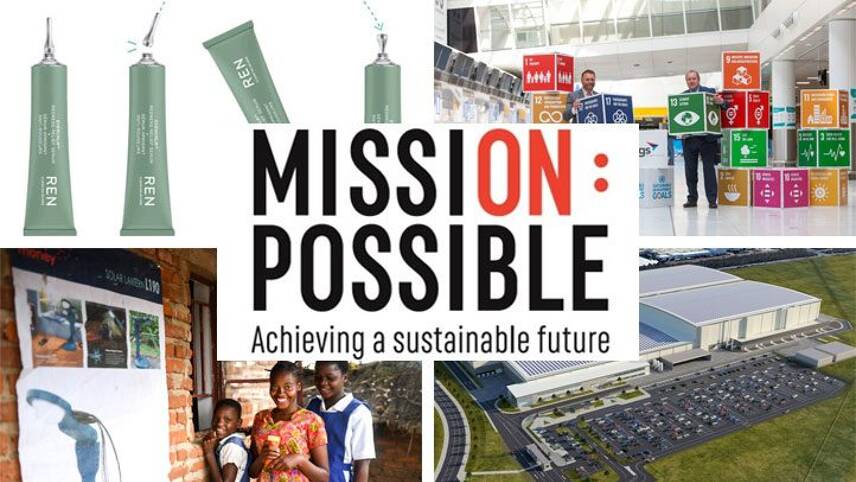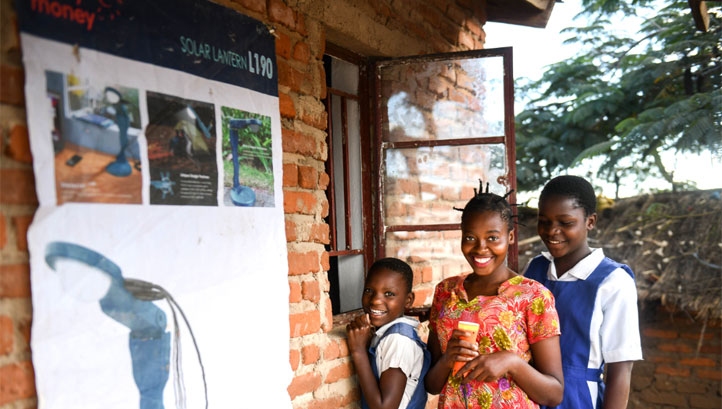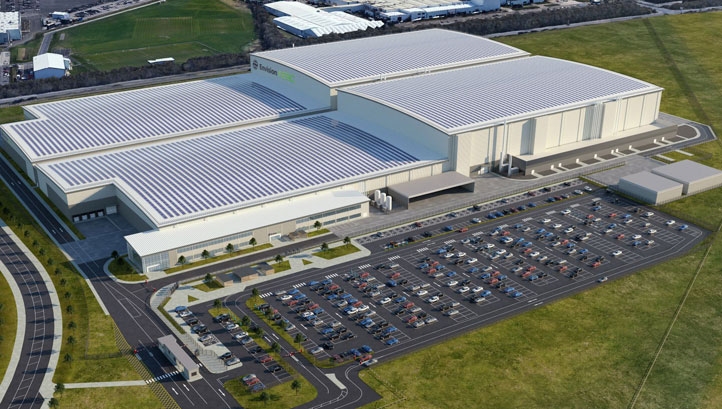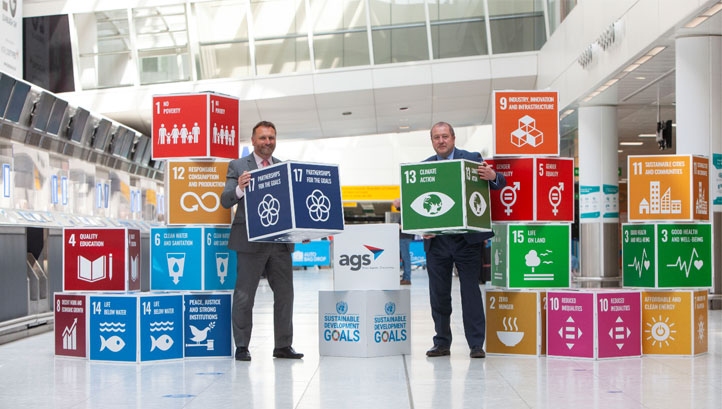Register for free and continue reading
Join our growing army of changemakers and get unlimited access to our premium content

Published every week, this series charts how businesses and sustainability professionals are working to achieve their ‘Mission Possible’ across the campaign’s five key pillars – energy, resources, infrastructure, mobility and business leadership.
As UK tabloid headlines filled with news of England’s wins against Germany and Ukraine, projects and initiatives which empower businesses to play their part in achieving a sustainable future, today, continued to launch and scale-up.
ENERGY: Statkraft partners with SolarAid for solar-powered lighting drive in Africa
The energy transition entails not only making sure that energy is low-carbon, but that it is accessible to all. The UN estimates that some 789 million people do not have access to electricity at present, with sub-Saharan Africa being one of the most affected geographies.
In a bid to bring electricity access to the more than 540 million residents here without access to electricity at their homes, Europe’s largest renewable energy supplier Statkraft has partnered with SolarAid to provide £2m worth of solar technology. The funding will be used to provide solar lighting to homes and solar power access for health clinics. There, the power will be used for fridges, lighting and medical equipment.
“While grid electrification is not going to reach most of rural sub-Saharan Africa in our lifetimes, the solar light revolution is taking place right now, helping light up millions of homes, which would otherwise be kept in the dark,” SolarAid’s chief executive John Keane said.
You can find out more about the energy transition in edie’s free report on Sustainable Development Goal 7: Affordable and Clean Energy and in edie’s new free COP26 Primer report on Clean Energy.
Image: SolarAid
RESOURCES: REN debuts plastic-free skincare samples
In the so-called “war on plastics”, sachets have proven a key sticking point. They are classed as hard-to-recycle as their lightweight and often multi-material composition often means the cost of recycling outweighs the value of the material produced.
While corporates have argued that some sachets have a role to play in delivering other sustainable development objectives – allowing low-income families in developing nations to access health and beauty and cleaning products – the business case for single-use plastic sachets for samples in developed countries is weakening amid changing legislation, consumer expectation and investor demands.
To that end, REN Clean Skincare has launched what it claims is the world’s first cosmetic sample tube made from 100% recycled aluminium. Produced in partnership with packaging designers and suppliers Tubex, the packaging format is mono-material and features a re-sealable ‘break-off’ nozzle. Unlike plastics, aluminium can be recycled an infinite number of times while retaining its quality. It also experiences an average recycling rate of 69%; the rate for plastic sachets is near zero.
The innovation’s launch comes as REN works to ensure that all packaging is recyclable or reusable by the end of 2021.
“While more costly, we are committed to using these new tubes to reduce plastic waste and hope to encourage other beauty brands to rethink their sample packaging with the planet in mind,” REN’s chief executive Arnaud Meysselle said.
MOBILITY: Nissan unveils £1bn plan to transform Sunderland factory into EV hub
After confirming a £52m investment into its Sunderland plane earlier this year, in the name of increasing lightweight and recycled aluminium use in electric vehicle (EV) manufacturing, Nissan made international headlines this week with a new £1bn plan to transform the facility into an EV hub and battery Gigafactory with an expanded co-located solar farm.
The plans combine EV manufacturing, optimised renewable energy use and large-scale battery production to drive low-carbon innovation. On battery production, the Gigafactory will have a capacity of 9GWh and Nissan is hoping it will be the first of its kind in the UK. There may be potential to expand to 25GWh and, thereafter, to add a further 10GWh.
In the UK, the sale of new petrol and diesel cars will be banned from 2030. The EU is mulling similar requirements from 2035. With this in mind, many carmakers are accelerating their transition to electric portfolios. Aside from Nissan, new commitments have been made by the likes of Volvo, Ford, Jaguar Land Rover and General Motors.
You can read edie’s full coverage of the Nissan story here.
THE BUILT ENVIRONMENT: H+H UK plots path to net-zero by 2050
In this part of this weekly roundup, edie typically features an announcement on a particularly innovative sustainable building, like the new primary school believed to be Norway’s most sustainable or a new office complex in China which will produce no net carbon, water waste or other waste in operation.
This week, however, the team is featuring building materials giant H+H UK’s updated sustainability strategy, designed to align its operations and supply chain with the national, legally binding net-zero target. The strategy outlines plans to accelerate the decarbonisation of manufacturing and logistics processes; to reduce embodied carbon and to improve product performance in-use, to help improve the energy efficiency of buildings.
On manufacturing, the strategy outlines commitments to source 100% renewable electricity for all controlled facilities; switch to low-carbon heat; improve energy efficiency and reduce water consumption by 5% by 2024, against a 2019 baseline.
“Climate change is one of the greatest challenges the world faces,” H+H Group’s chief executive Michael Troensegaard Andersen said. “H+H fully supports the Paris Agreement on climate change and we see sustainability as a strategic enabler of growth for our business.”
BUSINESS LEADERSHIP: ASG Airports outlines net-zero vision
It’s been a busy few weeks for new sustainability commitments in the UK’s aviation sector. Shortly after Gatwick updated its sustainability strategy with a net-zero target for Scope 1 (operational) and Scope 2 (power-related) emissions, Bristol Airport followed suit. At the same time, the UK Sustainable Aviation Commission set new emissions reductions targets for the sector for 2030 and 2040. It would be remiss to dub all of these headlines ‘success stories’ in the eyes of all, as green groups have been calling for more clarity on capping growth and accounting for emissions from flights.
Nonetheless, there has been another major announcement in the sector this week, from the operator of Aberdeen, Glasgow and Southampton (AGS) Airports – a net-zero target for Scope 1 (direct) and 2 (power-related) emissions, deadlined at the mid-2030s. The Airports have already achieved carbon neutrality through offsetting. Work in-house to reduce emissions from flights, road and ground vehicles and energy use at airport buildings will now be accelerated. On flights, the firm has stated that it will promote a mix of technologies including alternative fuels, electric aircraft and hydrogen solutions.
These commitments form part of a broader update to the business’s sustainability strategy, designed in alignment with the UN’s Sustainable Development Goals (SDGs).
“As we seek to regrow and restore the connectivity that will help drive Scotland’s and the UK’s recovery post-Covid-19, we will balance the undoubted social and economic benefits of aviation with our climate change responsibilities,” AGS Airports’ chief executive Derek Provan said.
Sarah George







Please login or Register to leave a comment.